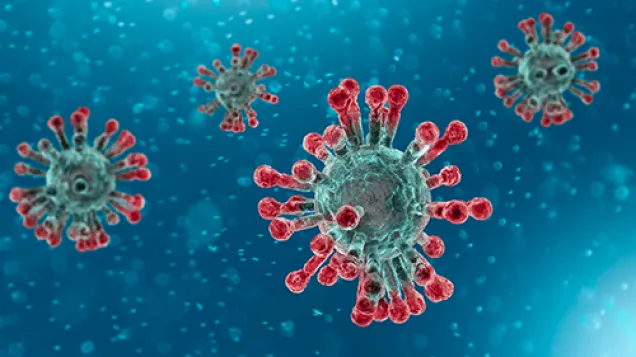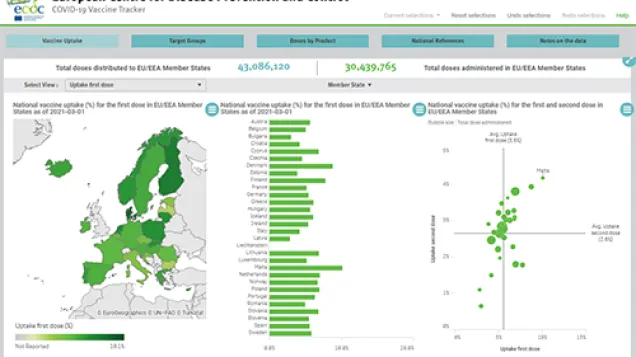Generic protocol for COVID-19 vaccine effectiveness studies during outbreaks in semi-closed settings in the EU/EEA
Executive Summary
Late 2019 saw the emergence of the severe acute respiratory syndrome coronavirus 2 (SARS-CoV-2), which causes coronavirus disease 2019 (COVID-19). As of 7 December 2021, over 46 million cases and more than 845 000 deaths have been reported in the European Union/European Economic Area (EU/EEA).
During 2021, first the Alpha variant of concern (VOC) and then the Delta VOC have dominated virus circulation in the EU/EEA. In late 2021, the Omicron VOC was introduced into the EU/EEA and, although substantial uncertainty remains at the time of writing, it looks like it could become the dominant circulating variant in coming months.
As of week 48 2021, four vaccines (Comirnaty, Spikevax [previously COVID-19 vaccine Moderna], Vaxzevria, and Janssen) have been authorised by the European Commission (EC) based on the scientific opinion of the European Medicines Agency (EMA) for use in the EU, and several others are under rolling review.
Post-marketing authorisation monitoring of vaccine effectiveness is an essential tool to document how COVID-19 vaccines perform in real life. These studies are key to generating adequate evidence to support the continuous assessment of the benefits and risks of the vaccines and inform decision-making on their use in national or regional vaccination strategies for different populations.
While it is extremely important to monitor the vaccine effectiveness of COVID-19 vaccines using prospective study design, where adjustments with respect on most confounders can be made, it is also possible to assess vaccine effectiveness in outbreak settings. Results from such studies may be rapidly collected and provide preliminary or additional evidence to other estimates. An advantage of outbreak investigations is that in some settings (e.g. schools) vaccination records might be easily obtainable. Investigation can take place at the same time as control measures are being carried out.
The collection of evidence available with rapid studies can be of particular interest in the context of new questions related to vaccine effectiveness, such as those associated with emerging VOCs.
This generic protocol is intended to be adapted to local/national contexts to guide the implementation of vaccine effectiveness studies against SARS-CoV-2 infection in the occurrence of an outbreak in semi-closed-settings. Semi-closed settings are defined as any setting in which the population can be easily identified from enrolment/employment registers (e.g. schools and other educational institutions, workplaces, etc.).
Two study designs and their respective methodologies are proposed: cohort and case control study. The format of the document allows the deletion of entire sections according to the study design and setting chosen, with the idea being to provide a ready-to-use tool in order to support the production of an outbreak investigation protocol at a local setting. The primary study objectives that are proposed are the estimation of vaccine effectiveness against SARS-CoV-2 infection for the cohort study and estimation against symptomatic SARS-CoV-2 for the case control study. Additional secondary objectives are proposed, which, according to the circumstances, can be included as a primary objective.
Generic protocol for COVID-19 vaccine effectiveness studies during outbreaks in semi-closed settings in the EU/EEA, Version 1.0
English (1.19 MB - PDF)


